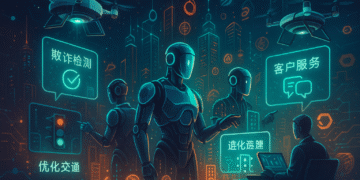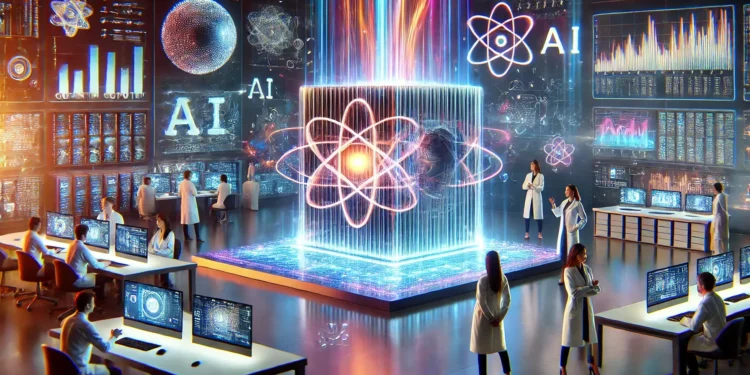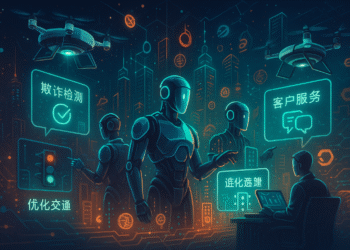In the ever-evolving landscape of technology, artificial intelligence (AI) is proving to be a game-changer. When paired with emerging technologies like quantum computing, AI’s potential grows exponentially, promising groundbreaking advancements across industries. This collaboration is not just theoretical—it’s happening now, unlocking solutions to problems that were previously deemed unsolvable.
Let’s explore how AI and quantum computing are joining forces to reshape the future and drive innovation.
The Perfect Match: AI Meets Quantum Computing
What is Quantum Computing? Unlike classical computers that process data in binary (0s and 1s), quantum computers use quantum bits, or qubits, which can represent and process multiple states simultaneously. This capability allows quantum computers to perform complex calculations at astonishing speeds.
Why Pair AI with Quantum Computing? AI excels at identifying patterns and making predictions, but its effectiveness is often limited by the computational power of classical machines. Quantum computing offers a solution by providing the immense processing capabilities AI requires to tackle more complex problems, such as optimizing supply chains, modeling chemical interactions, and simulating financial markets.
Real-World Examples of AI in Quantum Computing
- Revolutionizing Drug Discovery with IBM and Biogen
- Pharmaceutical companies like Biogen are collaborating with quantum computing leaders such as IBM to accelerate drug discovery. Quantum computers, combined with AI algorithms, are helping scientists model molecular interactions in unprecedented detail. This approach reduces the time required to identify viable drug candidates, potentially saving years in the development process.
- For example, AI-driven quantum models can predict how proteins fold—an intricate process that classical computers struggle to simulate—offering insights into diseases like Alzheimer’s and Parkinson’s.
- Optimizing Financial Portfolios with Goldman Sachs
- The financial sector is also leveraging the power of quantum computing and AI. Goldman Sachs has partnered with quantum computing companies to explore portfolio optimization. AI algorithms analyze market trends, while quantum computers process multiple investment scenarios simultaneously, helping firms manage risk and maximize returns.
- With quantum-AI synergy, Goldman Sachs aims to improve decision-making in high-stakes financial environments, such as stock trading and risk management.
- Solving Complex Logistics with Volkswagen
- Volkswagen is using AI-powered quantum computing to optimize traffic flow and vehicle routing. By combining AI’s predictive capabilities with quantum computing’s ability to analyze vast datasets, Volkswagen successfully demonstrated a project in Lisbon where quantum algorithms optimized public transit routes, reducing congestion and improving efficiency.
- This approach could lead to smarter cities and more sustainable transportation systems worldwide.
- Accelerating Material Science at Google
- Google is at the forefront of merging AI with quantum computing. One notable project involved using quantum-AI models to simulate chemical reactions, a crucial task for developing new materials and cleaner energy solutions. These simulations are far beyond the reach of classical computers, making this collaboration essential for breakthroughs in energy storage and carbon capture technologies.
What Problems Can Quantum-AI Collaboration Solve?
- Supply Chain Optimization
- In industries like manufacturing and retail, AI combined with quantum computing can revolutionize supply chain management. By analyzing vast datasets in real time, these systems can predict demand, optimize inventory, and reduce logistics costs. Companies like DHL and Amazon are already exploring how quantum-AI solutions can make global supply chains more efficient and resilient to disruptions.
- Cryptography and Cybersecurity
- While quantum computing has the potential to break existing cryptographic protocols, it can also create more secure systems. AI can assist quantum computers in designing advanced encryption methods to protect sensitive data in a quantum-powered future.
- Personalized Healthcare
- Quantum computing, guided by AI, can process genetic data and develop personalized treatment plans tailored to an individual’s unique genetic makeup. This innovation could revolutionize how diseases like cancer are treated, offering patients targeted therapies with higher success rates.
Challenges in the Quantum-AI Partnership
While the potential of AI in quantum computing is vast, there are significant hurdles to overcome:
- Hardware Limitations: Quantum computers are still in their infancy, with challenges like qubit stability (quantum coherence) and error correction yet to be resolved.
- Complex Algorithms: Developing AI models that can leverage quantum computing’s unique capabilities is a daunting task requiring interdisciplinary expertise.
- High Costs: The cost of building and maintaining quantum computers remains prohibitively high for widespread adoption.
The Road Ahead: A Quantum-AI Future
Despite these challenges, the trajectory for AI and quantum computing is undeniably promising. Tech giants like IBM, Google, and Microsoft are investing heavily in quantum computing research, while startups such as D-Wave and Rigetti Computing are pushing boundaries in AI integration. The convergence of these technologies promises a future where:
- AI models can solve optimization problems in seconds instead of hours.
- Breakthroughs in science and engineering become routine.
- Societal challenges like climate change, healthcare, and cybersecurity find transformative solutions.
Conclusion: A Future of Infinite Possibilities
The partnership between AI and quantum computing is more than just an exciting technological development—it’s a paradigm shift. By combining AI’s adaptability with quantum computing’s unparalleled processing power, this collaboration is poised to redefine what’s possible in nearly every industry.
As quantum-AI research progresses, we stand on the brink of discoveries that could fundamentally improve our world. Whether it’s curing diseases, safeguarding our digital lives, or addressing global challenges, the synergy between AI and quantum computing is unlocking a future filled with unprecedented possibilities.
What are your thoughts on AI and quantum computing shaping the future? Do you see any other industries that could benefit from this game-changing partnership? Share your ideas in the comments below!















